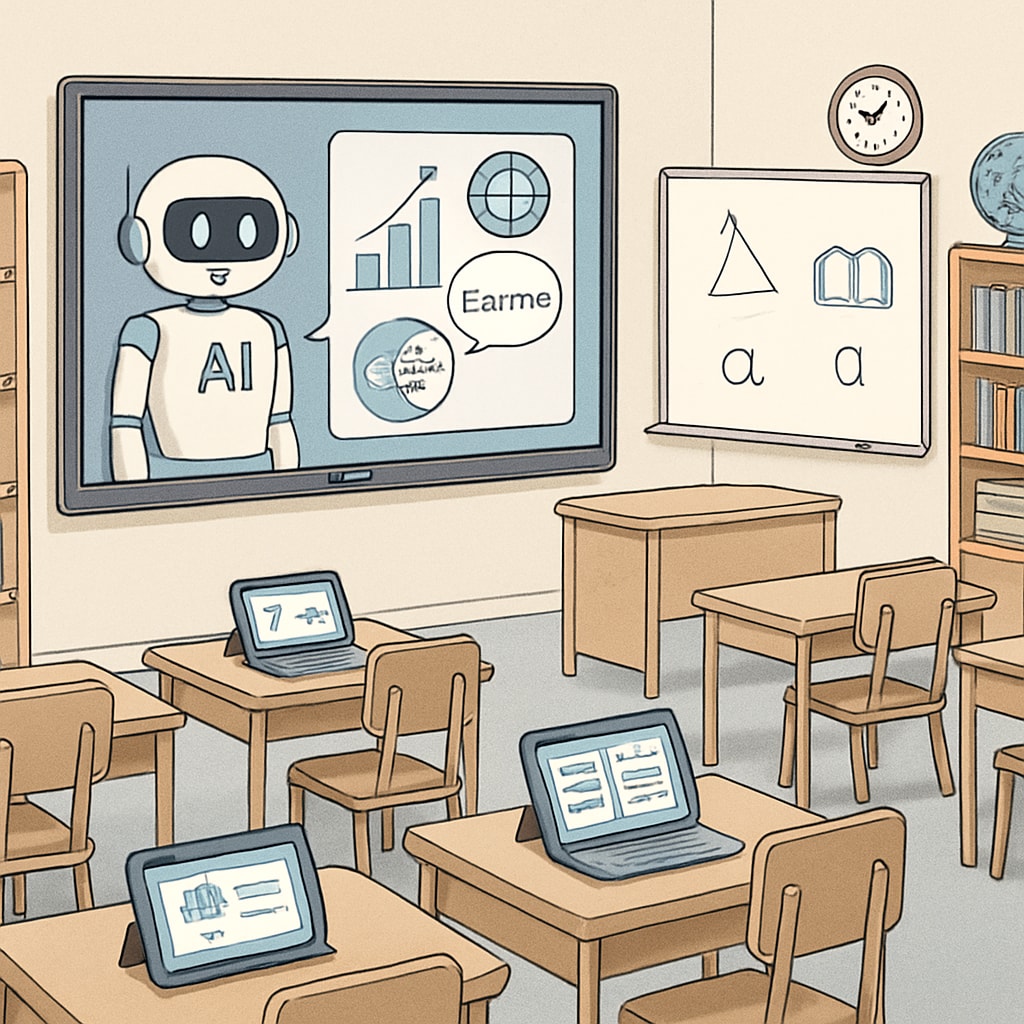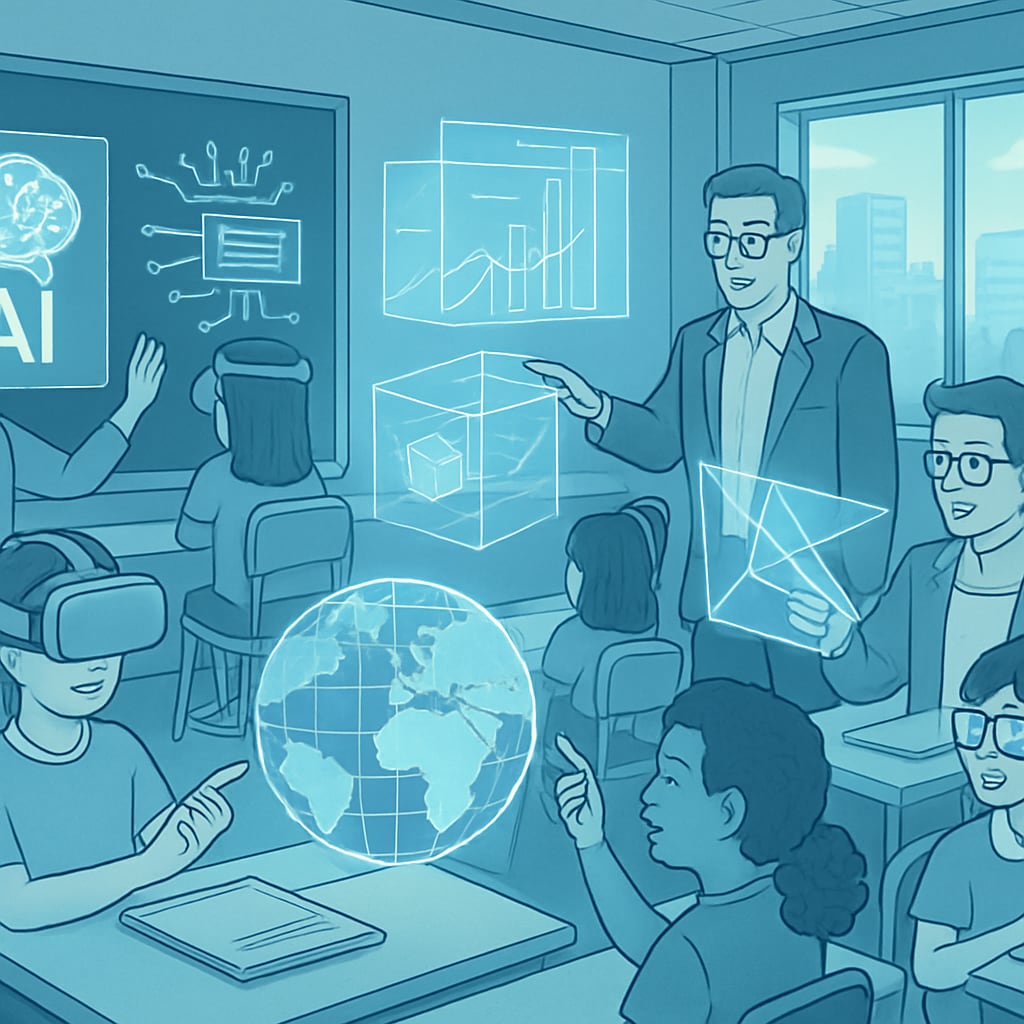Artificial intelligence (AI) in education is rapidly reshaping the way students learn, teachers teach, and systems operate. The growing role of AI in classrooms—from personalized learning experiences to intelligent assessments—is driving transformative education trends. Looking ahead to 2030, this intelligent revolution is poised to redefine K12 education, enabling a future where learning is more inclusive, adaptive, and efficient.
The Current Role of AI in Classrooms
Today, artificial intelligence plays a significant role in modern classrooms. AI-powered tools such as adaptive learning platforms and virtual tutors analyze student performance to tailor educational content to individual needs. For example, platforms like Khan Academy leverage AI algorithms to help students progress at their own pace, addressing gaps in understanding.
In addition, AI-driven systems assist teachers by automating administrative tasks such as grading, freeing up more time for personalized instruction. Intelligent assessment tools evaluate not only academic performance but also soft skills like critical thinking and collaboration, offering a holistic view of student growth.

Future Trends Shaped by AI in Education
As technology advances, the integration of AI into K12 education will deepen, with several key trends emerging:
- Hyper-Personalized Learning: By 2030, AI systems will analyze vast amounts of data to create highly customized learning pathways for each student, considering their strengths, weaknesses, and interests.
- Emotionally Intelligent AI: AI will evolve to recognize students’ emotional states, adapting teaching methods to keep learners engaged and motivated.
- Immersive Learning Experiences: Virtual reality (VR) and augmented reality (AR) powered by AI will transform subjects like history and science into interactive experiences, making education more engaging.
- Global Accessibility: AI will bridge educational gaps by providing affordable, quality learning to underserved communities worldwide, reducing inequities in access.
These trends will not only benefit students but will also empower educators with actionable insights, allowing them to optimize teaching strategies and classroom management.

Challenges and Ethical Considerations
While the potential of AI in education is vast, challenges remain. Issues such as data privacy, algorithmic bias, and the digital divide must be addressed to ensure equitable and ethical implementation. For example, concerns about sensitive student data being mishandled may require stricter regulations and transparent practices.
Moreover, the reliance on AI in classrooms should not overshadow the importance of teacher involvement. AI is a powerful tool, but the human connection in education remains vital for fostering social skills and emotional development.
Looking Ahead: The Vision for 2030
By 2030, K12 education will be transformed into a dynamic ecosystem where AI-powered technologies seamlessly integrate into every aspect of learning. Students will benefit from adaptive curricula that evolve with their progress, while teachers will have access to advanced analytics tools to support their instructional goals.
In addition, global collaboration enabled by AI will allow students from different countries to connect, learn, and solve problems together, fostering a sense of global citizenship. As a result, education systems worldwide will become more resilient, equitable, and future-ready.
To achieve this vision, stakeholders—including policymakers, educators, and technologists—must work collaboratively to overcome challenges and harness AI’s full potential responsibly.
In conclusion, artificial intelligence in education is not just a trend; it is a fundamental shift in the way knowledge is imparted and acquired. As we approach 2030, the intelligent classroom revolution will pave the way for a brighter, more inclusive future in K12 education.


